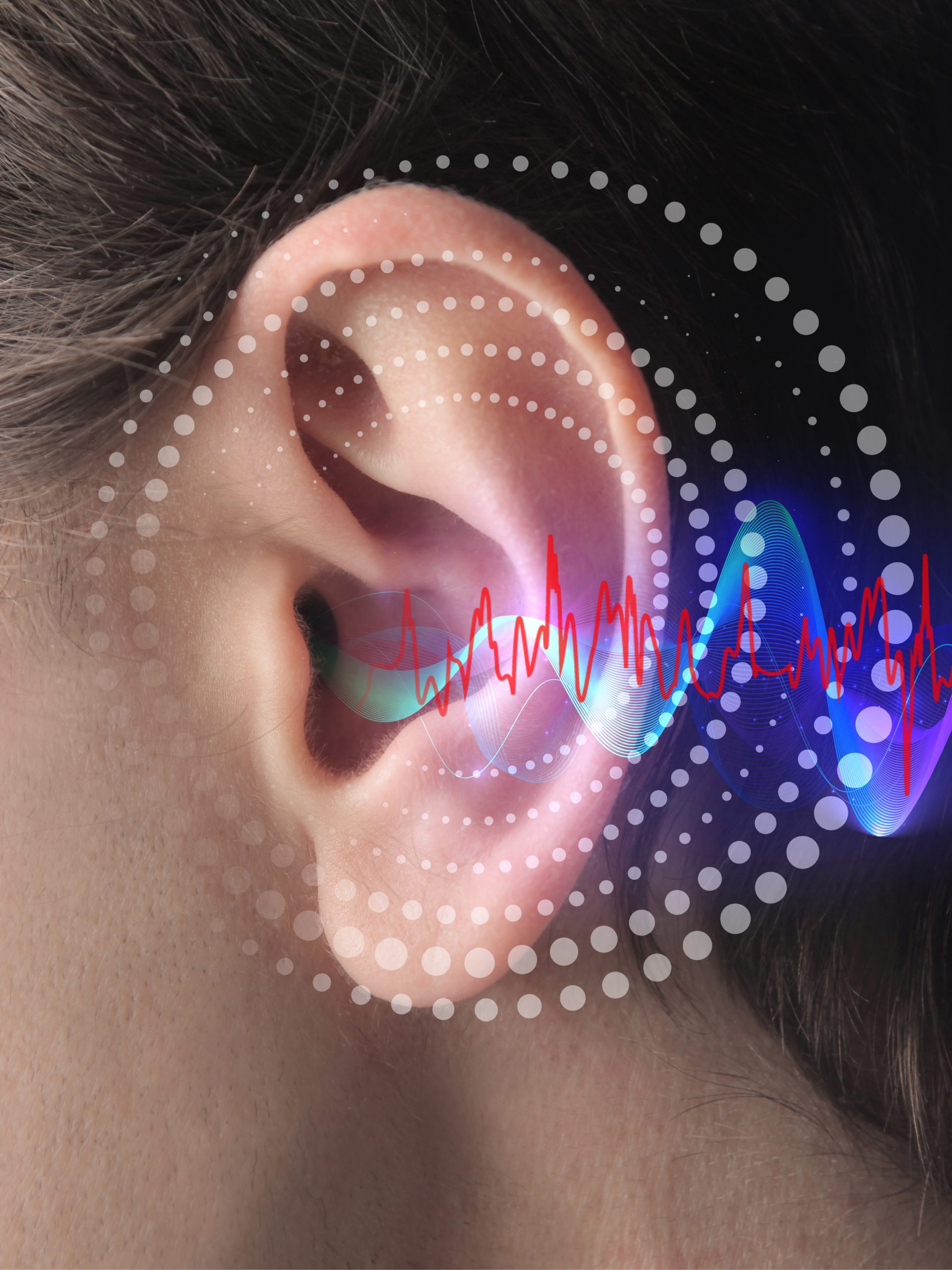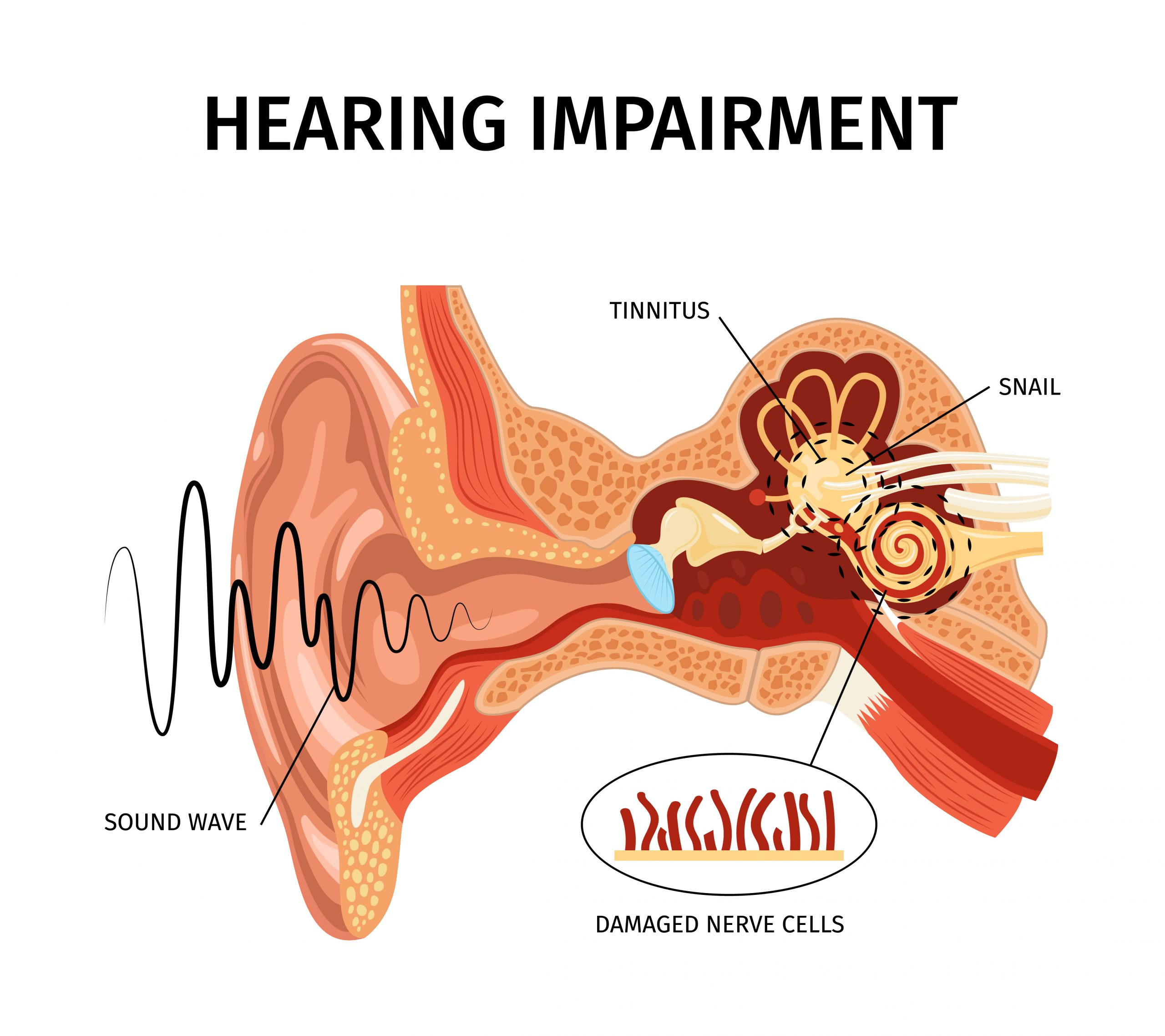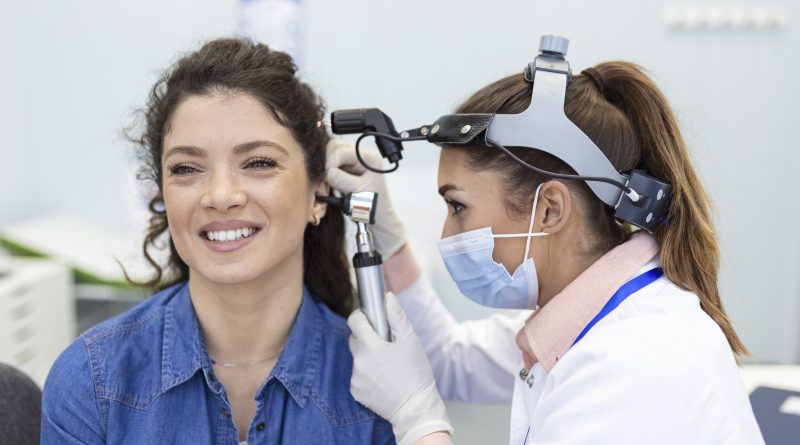A Ringing in Ears…..

Ringing in your ears is a very annoying symptom. It can also cause hearing loss if the cause goes untreated…….
By Dr Deepti sharma
People who suffer Tinnitus (ringing in the ears) they generally seek help from ENT specialists, but the problem sometimes originates from compressed jaw joints. Tinnitus can sound like a high-pitched whistle or it can sound like a hissing sound.
Tinnitus can be constant or intermittent. It can sound like a roaring, a buzzing or a chirping. You can imagine how annoying this can be when you are trying to listen to what someone is saying to you and above their voice all you hear is a chirping sound. A lot of people actually wear away or eat away several layers of the tooth especially in the biting surface of the tooth which is called as bruxism which in later cause severe dental attrition issue.
 In such people most of their teeth have become flat because they have worn away and there is a loss in vertical height. So we have to treat this as a complete rehabilitation process. In addition to get rid of the habit or working towards reducing the effect of the habit on the teeth, we also have to restore the teeth back and give them crowns under full mouth rehabilitation for attrited teeth.
In such people most of their teeth have become flat because they have worn away and there is a loss in vertical height. So we have to treat this as a complete rehabilitation process. In addition to get rid of the habit or working towards reducing the effect of the habit on the teeth, we also have to restore the teeth back and give them crowns under full mouth rehabilitation for attrited teeth.
Ringing In The Ears May Be Dental Issue
Can my teeth really cause ringing in my ears? Well surprisingly jaw joint and bite problems have been scientifically shown to be one of the causes of tinnitus. Tinnitus is a constant ringing or humming noise and sufferers often experience more insomnia, anxiety and depression. Tinnitus affects all age groups, and it’s thought that about 10 percent of the population have it all the time. The usual symptoms of jaw joint problems are tooth grinding, pain, earache, clicking of the joint, or difficulty in opening the mouth. Other symptoms that may arise are headaches, neck pain and teeth cracking.
Tinnitus can be constant or intermittent. It can sound like a roaring, a buzzing or a chirping. You can imagine how annoying this can be when you are trying to listen to what someone is saying to you and above their voice all you hear is a chirping sound…
The temporomandibular jaw joint is a complex joint as it has to allow for side-to-side and front to back movements that take place during chewing. The muscles that make the jaw move are some of the most powerful in the body. This means that quite large forces have to act through the jaw joint and as a result, the joint is at risk of damage.

There are three main theories behind why problems with the jaw joint may cause tinnitus, or make it worse. Firstly, the chewing muscles are near to some of the muscles that insert into the middle ear and so may have an effect on hearing, and so may promote tinnitus. Secondly, there can be a direct connection between the ligaments that attach to the jaw and one of the hearing bones that sits in the middle ear. Thirdly, the nerve supply from the jaw joint has been shown to have connections with the parts of the brain that are involved with both hearing and the interpretation of sound.
The jaw joint can be overloaded if your teeth are the wrong shape or out of position, even slightly. Jaw joint problems are common in people with missing teeth and when the teeth don’t fit together properly. If you suffer from tinnitus it can be an idea to make sure that your jaw joint is working properly. We as dentist can make you a removable individual bite tester to wear and if this takes the tinnitus away, treatment can be carried out to improve your bite and keep the noise away permanently. Treatments may include reshaping or replacing teeth, braces or a bite guard.
(The author is Owner/Director,
Dr Sharmas Dental care, Nagpur)


The blog is helpful in understanding the minute but complex nature of human body parts involving ENT.